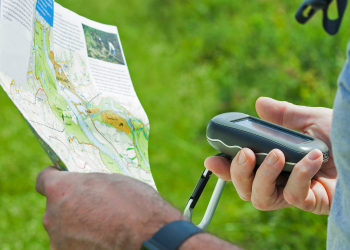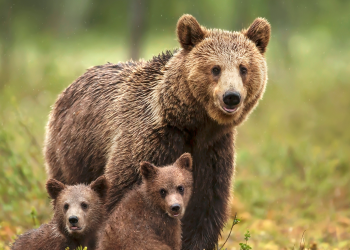Safety and Outdoor Ethics
Safety & Outdoor Ethics
The best way to fully enjoy your trip on the Forest is to come prepared, have the right equipment and think safety. In backcountry areas, visitors face inherent risks of weather conditions, isolation, physical hazards, encounters with animals and lack of communications.
Please understand that search and rescue operations may not be as rapid as in an urban setting. As a forest visitor, you have a significant responsibility for your personal safety during any activity you pursue.
Safety Tips
- Leave a trip itinerary with someone who will check in with you regarding your return time.
- Carry the 10 essentials, which includes a map, extra food & water, extra clothing, a flashlight & first aid kit. Keep your equipment in good working order.
- Be prepared for extreme temperatures and storms, heat, snow and/or rain. Hypothermia is the #1 killer of outdoor enthusiasts. During lightning storms, avoid bare ridge tops & exposed places. Find shelter in a densely forested area at a lower elevation.
- Learn basic first aid so you will know how to identify and treat injuries and illnesses. Learn the symptoms of heat exhaustion, heat stroke, hypothermia, and dehydration.
- Do not rely on your mobile device. Although GPS devices and cell phones are helpful, do not rely on them, especially in the deep canyons of the Gorge. Even a few hundred yards up some trails there is no cell phone reception and batteries wear out at the most inconvenient times.
- Know your limitations & experience level. Make sure you are fit for the type of outing you are planning.
- Think about your footing while traveling near cliffs. Trees and bushes can't always be trusted to hold you. Stay on developed trails or dry, solid rock areas with good footing.
- If hiking with others, stay together; it is highly recommended that you hike with at least one other person.
- Always treat water found along the trail if you decide to drink it.
- If you think you are lost, do not panic. Stop and plan your next action, which often is to stay in one place, especially if darkness is near.
- Leave plenty of daylight for travel. Set up an emergency camp while there is still daylight if needed.
- Respect Wildlife. Keep a safe distance from wild animals and be careful not to disturb their habitat.
Think of your most enjoyable trip to the National Forest. Did you set up in a clean campsite? Enjoy a peaceful evening during the campground quiet hours? See lots of wildflowers along the trail? If you did, then the people around you were practicing good outdoor ethics and thinking of the next visitor.
Outdoor ethics are made up of the conduct and behavior you use while you are in the outdoors. They can be practiced in the wilderness, along scenic byways or in developed campgrounds.
As visitors and stewards of your National Forest Service Lands using common courtesy and minimizing impacts will help make more enjoyable memories for visitors and preserve the land for the next generation.
Be considerate of others
- Public lands are for everyone. Respect other visitors and protect the quality of their outdoor experience.
- Be courteous. Yield to other users on the trail.
- Step to the downhill side of the trail when encountering pack stock.
- Take breaks and camp away from trails and other visitors.
- Let nature's sounds prevail. Avoid loud voices and noises (this includes playing music loudly on your mobile device or speaker)!
Camp responsibly
- Creating new campsites kills vegetation and leads to soil erosion. If possible, use an existing site, or pick a site where vegetation is absent.
- Keep campsites small.
- Pick a spot where vegetation is absent.
- Never dig a trench or build a tent platform.
- Respect living trees. By carving or chopping into the trunks of trees, people unknowingly damage the tree by slitting veins right below the bark. These veins transport nutrients and water throughout the tree. If the damage becomes severe, it will deprive the tree of nutrients and food, and the tree slowly starves to death.
- Choose your campsite, park your car and wash at least 200 feet from rivers, streams, lakes or wetlands.
- Use biodegradable soap or plain water when washing.
Answering nature’s call
Bacteria and viruses found in human feces are known to cause hepatitis, salmonella, giardia, and other gastro-intestinal diseases. Remember, the water in the rivers and lakes you visit may flow into your own drinking water supply. Please follow these simple steps if a public restroom is not available:
- Find a spot at least 200 feet from any water source.
- Dig a hole 6-8 inches deep and bury human waste.
- Pack out used toilet paper and feminine products. Animals will dig up those products and scatter them around the area.
- Several types of waste-disposal products are on the market that come with enzymes that immediately begin breaking down solid waste.
- A leak-proof portable toilet or other self-contained receptacle is another option.
Keep forest creatures wild
- Do not approach or follow wildlife—observe from a distance.
- Avoid wildlife during sensitive times: mating, nesting, raising young, or winter.
- Leash your dog to keep it and wildlife safe.
- Do not feed wildlife—let them feed themselves. Store your rations and trash safely, securely, and out of reach.
Know Before You Go

Some recreation sites require a modest recreation fee to help provide the services and facilities at the site. To help you get the most of your experience, read these helpful tips.
Leave No Trace

Through cutting-edge research, hands-on education, and proven strategies, we empower people to care for the outdoors—without the need for costly restoration or access restrictions.
Be Bear Aware

Being outdoors means being with wildlife. Many people never encounter a bear. But if you do, here's some simple advice:
Campfire Safety

Learn how to pick your campfire spot as well as prepare, build, maintain and extinguish your campfire.
Keep Firewood Local!

Don't Move Firewood: Help protect our national forests! Prevent the spread of tree-killing pests by obtaining firewood at or near your destination and burning it on-site. Moving firewood is illegal in some states.


